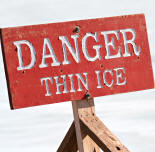|
|
HHS Releases $5 Billion from Low Income Energy Assistance Program for Winter
Senior Journal
October 17, 2008

LIHEAP funds will help low-income households meet heating and other energy needs, critical for many seniors.
A federal program that has been critical to low-income senior citizens during the severe winters that increase their need for heating fuel, has just released $5.1 billion to assist states, territories, tribal areas and the District of Columbia with addressing their energy needs.
“The release of these funds will help low-income families stay warm this winter,” HS Secretary Mike Leavitt said. “These funds will also help reduce the risk of health and safety problems exacerbated by exposure to extreme temperatures.”
Low Income Home Energy Assistance Program (LIHEAP) funding is provided to states through the Office of Community Services in the Administration for Children and Families (ACF) at HHS. The funds will assist eligible low-income households in meeting their heating and other energy needs.
“The funds released by the Bush Administration will help our most vulnerable citizens, including the disabled, elderly and children,” said Josephine Robinson, director, Office of Community Services at ACF.
The release of funds is under the Fiscal Year 2009 Continuing Resolution, which says $4.5 billion in block grant funds and $590 million contingency funds must be released by Oct. 30, 2008.
Block grant funds will be allocated to states under a formula specified in the Continuing Resolution.
Of the $590 million in contingency funds, $100 million will assist states where large numbers of eligible households use heating oil for heat: Alaska, Connecticut, Maine, Massachusetts, New Hampshire, Rhode Island, and Vermont. The remaining $490 million will help individuals in all 50 states.
More Information on US Health Issues
|
|



